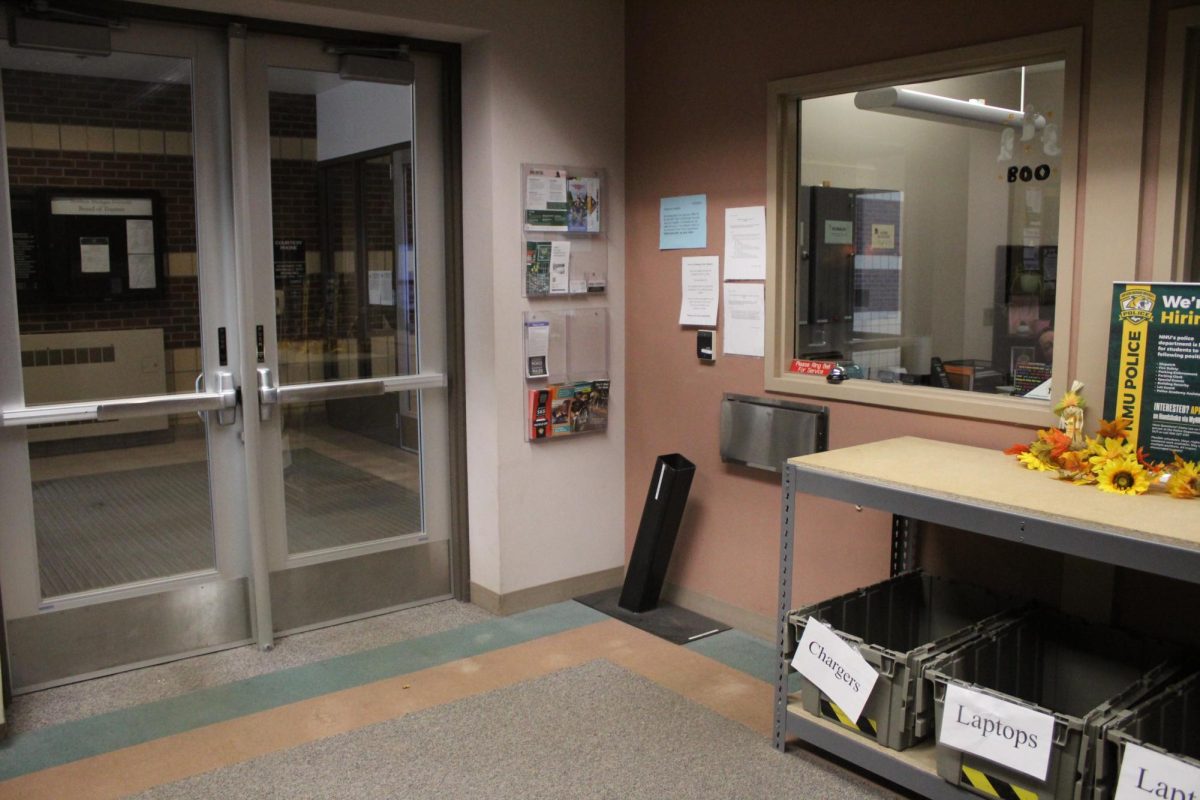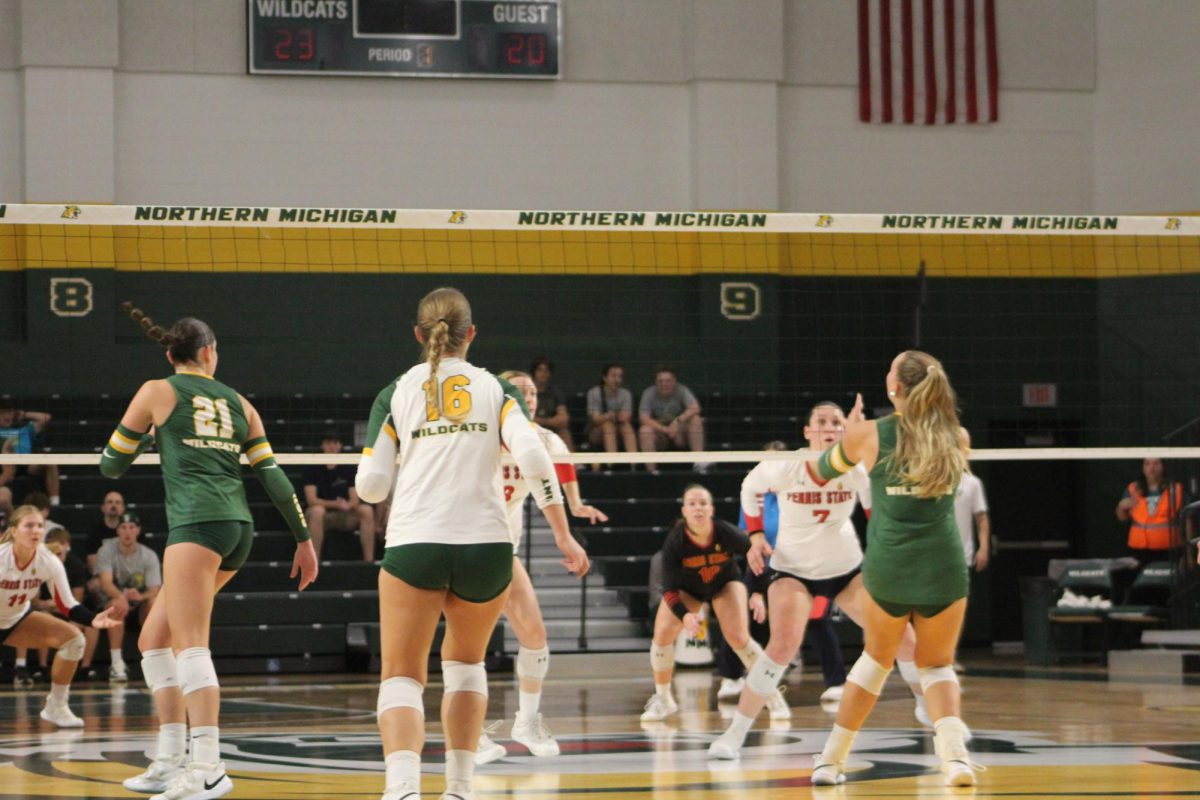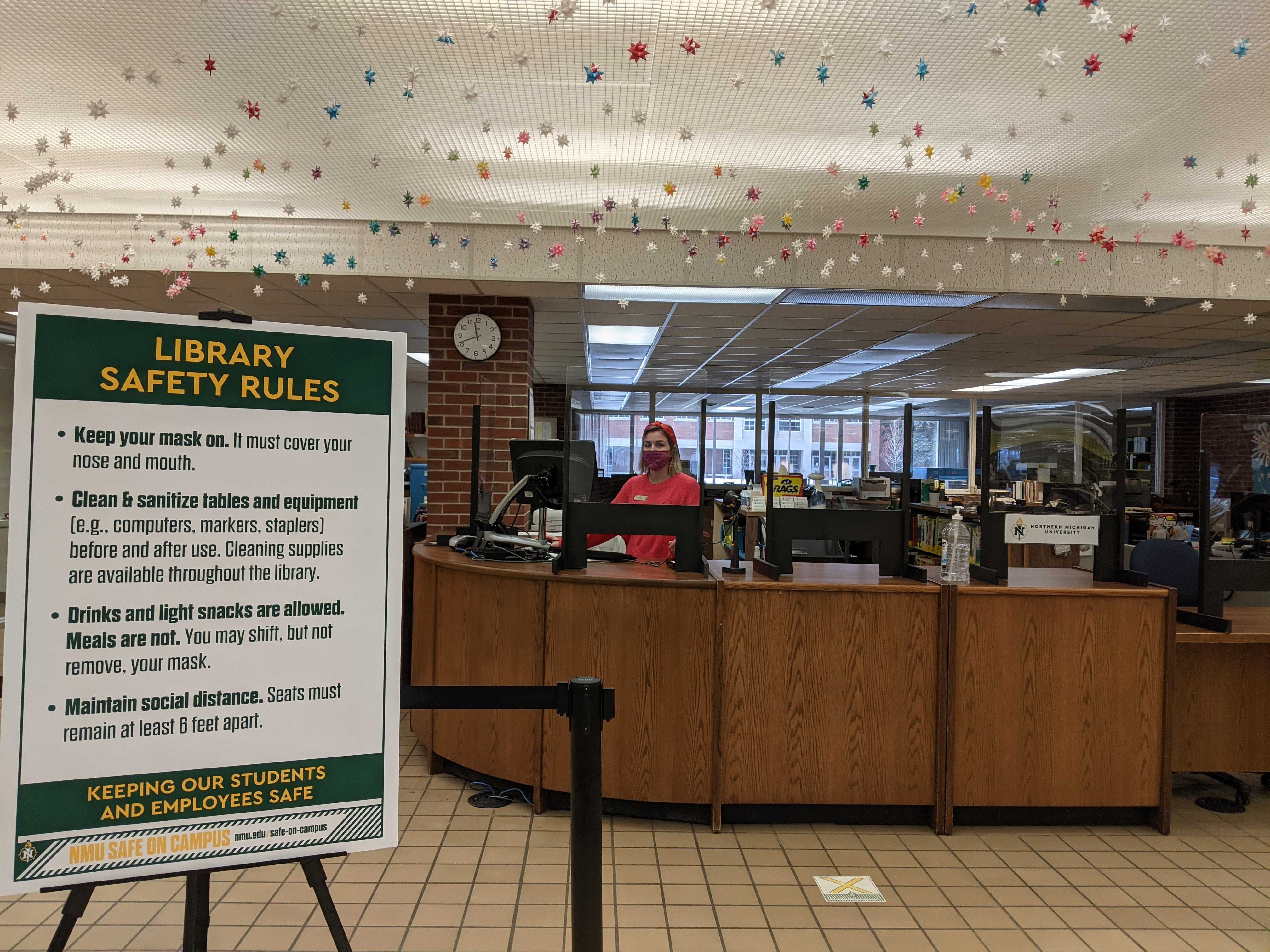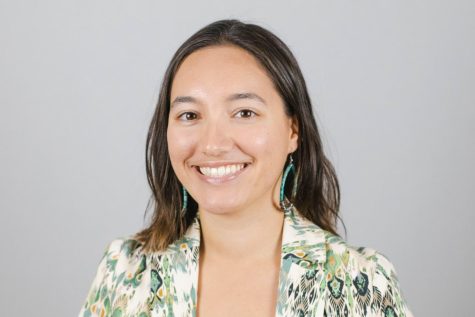With so much changing and moving online due to COVID-19, it can be confusing to try and figure out what is open in person and which resources will need to be accessed online. This semester, the Lydia M. Olson Library located in Harden Hall is providing as many in-person services as possible, but are altering a few policies and providing more online options as well.
The good news is most services like printing and borrowing books are still open and available to students with the inclusion of extra sanitation measures.
Similar to the Fall 2020 semester, masks and physical distancing are required throughout both levels of the library and meals are not allowed. Drinks and light snacks are permitted as long as students do not fully remove their mask while eating or drinking.
The furniture in the library is currently set up to allow for physical distancing which means the moving of any tables or chairs is not allowed, even if you are sitting with a roommate. Mollie Freier, Head of Public Services and professor at Lydia M. Olson Library, said that students moving chairs was one of the main reasons the study rooms were closed last semester. The study rooms will remain closed until further notice.
Another change this semester is the adjustment of the 24/7 study area in the library.
“That was actually sponsored by the NMU Police Department,” Freier said. “They managed to keep a count of how many students took advantage of those hours and they said it is not worth keeping the whole library open for this.”
Instead of a 24 hour study hall for the Winter 2021 semester, the first floor of Harden Hall will be open on Fridays, Saturdays and Sundays only until midnight.
Regular hours for the library have also shifted slightly to accommodate earlier weekend hours. The library will now be open on weekdays from 7:30 a.m. to 11 p.m., on Saturdays from 9 a.m. to 4 p.m. and on Sundays from 9 a.m. to 9 p.m.
“We discovered [through the 24/7 study hall counts] that we were getting a lot of people on weekend mornings. In the past, the library has not been open on weekend mornings,” Freier said. “We will have to cut off hours at the other end of the day because we don’t have any more staff members than we did before, but these are the hours that people are actually using it so that strikes me as a win.”
The library also provides hours, both in-person and virtually, for research assistance. According to the library website, librarians are available in-person Monday through Thursday from 10 a.m. to noon and 1 p.m. to 4 p.m. as well as by appointment. If you prefer to contact a librarian while at home, you can do so Monday through Friday from 8 a.m. to 5 p.m. via phone, email or chat.
If you are also looking for in-depth information or help citing sources, you can also visit the Departmental Liaison page to find a librarian with expertise in your subject area and to schedule an appointment.
Students can check out books from the library, MeLCat and Interlibrary Loan and request a curbside pickup by scheduling a pickup time and calling (906) 227-2250 once they arrive. If online resources are more appealing, the library still offers access to JSTOR, e-books and an extensive list of databases. They even have some feature films and documentaries that are available on OneSearch and can be streamed for free from your computer.
Research help is also available from the NMU Archives if students need access to primary historical sources. Most of their available content is digital and professor and University Archivist Marcus Robyns is currently spearheading a project to digitize historical records from the U.P. and create a comprehensive collection of resources from the region. Information about the project and how you can take advantage of the archives can be found on the Archives website and their new information page with links to other resources.
“There is information there about our collection finding system, digital sources that we have available online,” Robyns said. “Students who are interested in not just in the Upper Peninsula, although there is a lot of that here and what we have available online, but also materials from around the world, North America, Michigan, et cetera.”
When it comes to viewing online or physical resources for an assignment, Freier recommends starting as early as possible. There are many staff members and resources available for students at the library and archives if they simply reach out and take advantage of them.
“The main thing to remember is when your professor gives you an assignment, and sometimes when you have a research assignment the professor will have a librarian come in and talk to you about how to do research in this articular area, just start,” Freier said. “I’m not saying be one of those people that starts reading everything and barely knows what is going on before you start really working on something but start collecting resources. Start finding out what is available on your topic. If you need to use Interlibrary Loan or MeLCat, you want to do that as early as possible.”
























